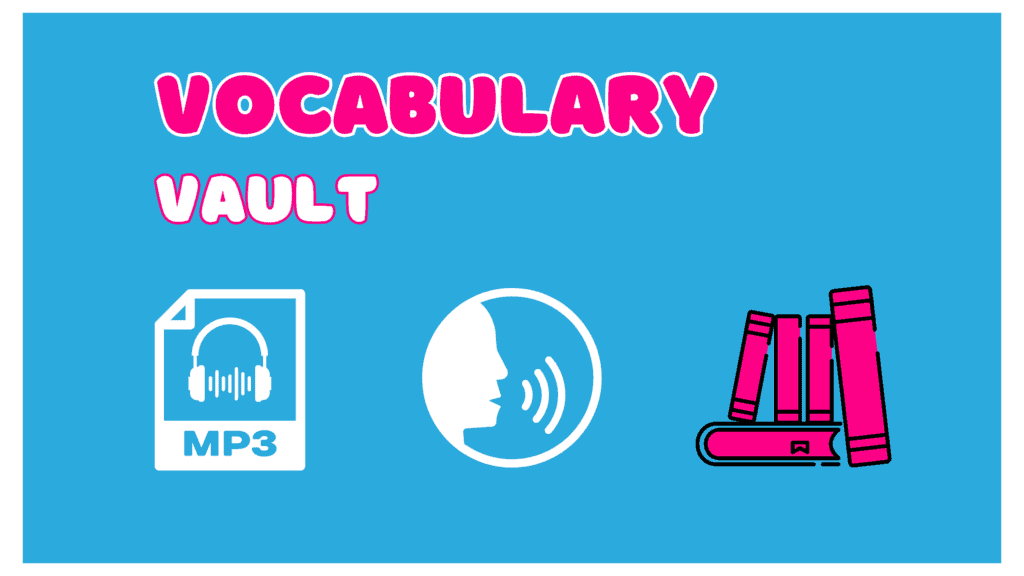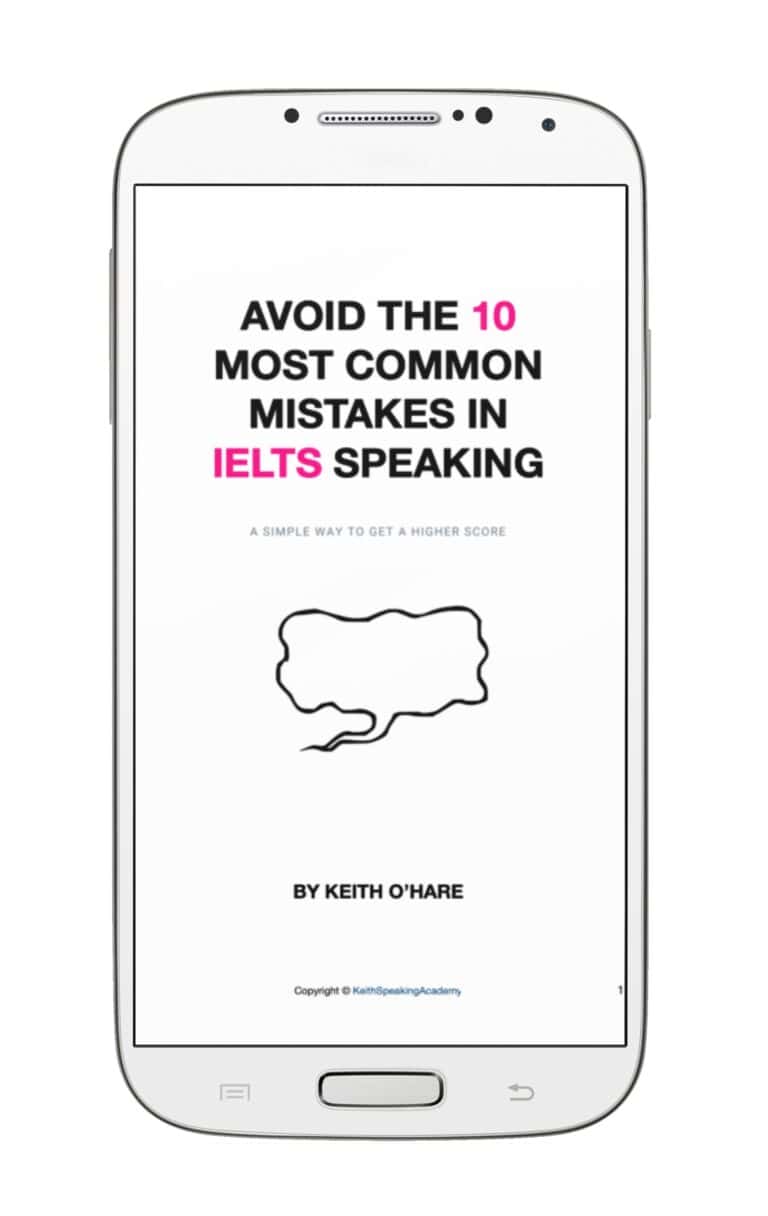IELTS Speaking Lesson about Hospitals
👇 Take this lesson with you! 👇
Table of Contents
IELTS Speaking Vocabulary: Hospitals
PLACES
- A hospital /ˈhɒs.pɪ.təl/
I work in a hospital
- To go to hospital (as a patient) UK
- To go to the hospital (as a visitor or worker) UK
- A & E ward = Accident and Emergency Ward
- General Ward = an area with beds for patients
- Operating theatre /‘ɒpəreɪtɪŋ ‘θɪətə/ = where surgery takes place
PEOPLE
- A patient (n.) /ˈpeɪ.ʃənt/ = a person receiving care or treatment
- Patient (adj.) /ˈpeɪ.ʃənt/ = having patience, not being in a rush.
I am not a patient patient, I want to get better as soon as possible!
- An inpatient /ˈɪn.peɪ.ʃənt/
- An outpatient /ˈaʊt.peɪ.ʃənt/
I’ve been admitted as an inpatient.
The growing number of inpatients is a rising cost for the government.
- A doctor
Synonym
- a physician – /fɪˈ zɪ ʃ.ən/
- A medical practitioner
- To see a/the doctor
- To go for a (routine) check-up = a medical examination
You seem to be very sick, you should see a doctor
I’d like to make an appointment for a check-up
- A nurse
- A registered nurse
SYSTEMS
- Health care
- Primary health care = first point of contact with NHS (community doctor [GPs,] pharmacy, dental / eye service…)
- Secondary health care = care of a specialist
- Social care (U.K.) = Care given to people who need daily help usually at home (eating, washing, moving…)
- Preventative care
- Private health care
- Public health care
- A health care worker

Listening Bingo
Listen to a doctor talking about his role in the hospital.
1) How many kinds of doctor are mentioned?
Click the arrow to see the answer
5
1. GP
–
General Practitioners
2. Paediatrician (treat children),
3. Oncologists (deal with cancers),
4. Pathologists (studies diseases),
5. Surgeons (do operations)
2) Listen again. Mark the boxes that contain the exact words you hear.
When you have a line of 3, then you have BINGO!

Click the arrow to see the answer
2) Bingo answers

Full script
Click the arrow to see the full script
What’s the role of a doctor in the hospital? That’s not an easy question because there are many types of doctors. One of the most common is what we call in the UK a GP a general practitioner (=community doctor) and this doctor actually doesn’t work in the hospital.
He or she works in the community, offering primary healthcare. They will see patients for check-ups or specific problems. They have to recognise the symptoms (= a sign of sickness), make a diagnosis (=identify the sickness) and in many cases prescribe medicine (=to advise and authorise medicine). Sometimes they might refer a patient to a specialist if they need more specific treatment.
In the hospital, there is a wide range of doctors including paediatricians (who treat children), oncologists (who deal with cancers), pathologists (who studies the cause and effect of diseases), surgeons (who carry out operations) and many, many more.
Basically a doctor’s role is to make sure patients that are sick, physically or mentally, get the treatment they need to get well. And doctors should also provide advice on preventing sickness and disease. In a nutshell (=in short), that’s it.
IELTS Speaking Idioms: Hospitals, Health Care
Can you guess these idioms?

Click the arrow to see the answer
1. To be on the mend = to be getting better, recovering from a sickness
I was off work ill for two weeks, but now I am on the mend
2. To be on call = be available at any time needed, but not officially on duty
Some doctors have to be on call, over the weekends
3. Round the clock = all day and night, non-stop
Some nurses work round the clock at the weekend.
- To work round the clock
- To be on call round the clock
- To study round the clock
4. To be out of the woods = to be out of danger (usually used in the negative)
The patient is better now, but she is not out of the woods yet.
Bonus Idiom
5. To be in the thick of it = to be deeply involved in an activity or situation
Hospitals are nearly always very busy and as nurses, we are in the thick of it.
Interview with a Nurse
1) Watch the interview and answer this question:
Does she like her job? Why or why not?
Click the arrow to see the answer
1. Does she like her job? Why or why not?
Yes, because it is rewarding!
Full script
Click the arrow to see the full script
What do you do?
I’m a nurse. Actually a registered nurse and I work in the local hospital.
What does your job involve?
Well, at the moment I’m responsible for looking after the inpatients, in the general ward. I have to check their blood pressure, maybe carry out blood tests, and then give patients their medication.
Of course always trying to make sure that patients are comfortable, well, as comfortable as can be. You know we have a duty of care (= a responsibility to look after s.o.) to all our patients, so we need to do everything we can to ensure their recovery.
I also have to liaise a lot with (=communicate with) the family of the patients, keeping them up-to-date and helping them understand the situation.
Do you like your job?
Yes, very much, although it’s a very demanding job. I mean on busy days, you’re in the thick of it, and when you’re working shifts (=a period of time that you work), long shifts, you can get very tired.
There’s a lot of wear and tear (=damage) on the body because you’re often lifting patients. And there’s a mental toll (= a negative impact on your mental health) as well.
We do have to look after our mental health because we see some very disturbing situations especially when patients pass away (=to die) But all said and done (=in the end / at the end of the day), I love this job, it’s very rewarding.
Pronunciation Files For Vocabulary From My Best Live Lessons
Use Words EASILY in English Conversations!
More Free Lessons
If you liked this lesson about music in IELTS Speaking, leave a comment below!
There are more lessons you can follow in the links below too.
CHALLENGES AND PROBLEM SOLVING in IELTS Speaking. Useful collocations and vocabulary to help you discuss about challenges and problem solving.
BUSINESS in IELTS Speaking. Useful vocabulary and idioms to express yourself when talking about Business.
DAILY ROUTINES in IELTS Speaking. Vocabulary and idioms you need to describe about your daily routines.
HEALTH in IELTS Speaking. Vocabulary and collocations to talk about health.
PHOTOGRAPHY in IELTS Speaking Learn vocabulary of taking, storing and sharing photos.


